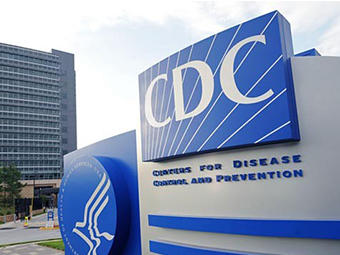
Section Branding
Header Content
Former CDC director Tom Frieden says Kennedy poses a 'risk' to the Atlanta-based health agency
Primary Content
LISTEN: If confirmed as Secretary of Health and Human Services, Robert F. Kennedy Jr. will have greater control over the Atlanta-based CDC. But just how much? GPB's Peter Biello speaks with former CDC director Tom Frieden about it.

Robert F. Kennedy Jr. ran for president this year on a campaign to “Make America Healthy Again.” Kennedy, a known vaccine skeptic, is now President-Elect Donald Trump’s nominee for Secretary of Health and Human Services, the agency that oversees the Atlanta-based Centers for Disease Control and Prevention. If confirmed, Kennedy will have greater control over the CDC, but just how much? Tom Frieden served as Director of the CDC during the Obama Administration. He’s now the President and CEO of the nonprofit Resolve to Save Lives, which he created in 2017 to focus on heart disease prevention and epidemic preparedness. He spoke with GPB’s Peter Biello.
Peter Biello: So if Kennedy is confirmed as director of HHS, what do you think the immediate impact on the CDC would be?
Tom Frieden: Really, I think the person who is confirmed as director of CDC may have even more impact. And if there's one thing we have to be, it's situational. We have to see what happens and then respond appropriately. We can always hope that there will be policies that promote health and protect Americans. But there are obviously really serious risks. There are proposals to dismantle CDC. And a weaker CDC would mean a sicker USA.
Peter Biello: Let me ask you about that vaccine policy question, because [RFK Jr. is] famous for being a vaccine skeptic. What impact could he have on Americans' access to vaccines?
Tom Frieden: Although his recent statements sound reasonable, there's a huge risk here. The plain truth is that vaccines save lives. And false claims by RFK Jr. and others not only undermine confidence in safe and effective vaccines, they also divert our energy and attention from figuring out the real cause of things like autism that affect so many people.
Peter Biello: One of the new initiatives of the CDC during the Biden administration was tracking gun violence as a public health issue. Do you expect this to continue?
Tom Frieden: I think we're just going to have to see. Time will tell what happens. I hope that whoever becomes the next CDC director defends the agency and helps it to do what it does best, which is work 24/7 to protect Americans from threats, whether those threats are infectious or noninfectious, manmade or naturally occurring, from the U.S. or from anywhere in the world.
Peter Biello: The word you used earlier in this conversation was "situational." Are there any such situations that you are particularly concerned about, aside from vaccines that we've already discussed?
Tom Frieden: I'm quite concerned about America's involvement in global health. It's in our self-interest that other countries have strong public health systems. Stronger there, safer here. Programs like PEPFAR have saved millions of lives. PEPFAR is the President's Emergency Plan for AIDS Relief, and it was created by George W. Bush. It's the largest global health program ever. I'm hopeful that the folks in Congress and in the administration will see that these are programs that are not just great for the world, they're great for the United States as well.
Peter Biello: Do you see nonprofits like yours filling the gap or picking up the slack if CDC is weakened or dismantled under the next administration?
Tom Frieden: Absolutely not. There is no nonprofit alternative to an effective public health agency. Nonprofits don't have the authority. They don't have the power. They don't have the staff. They don't have the resources. There are certain things that we do rely on our government to do: keep the water, the food, the air safe; ensure that we're protected from avoidable diseases; track trends that may affect our lives. That can only be done by a governmental public health agency.
Peter Biello: Do you expect any new initiatives for the CDC under Kennedy if he is in fact confirmed as secretary of HHS?
Tom Frieden: Well, it's interesting to see the attention to chronic disease. It's very rare to have bipartisan interest in addressing chronic disease. And there is a chronic disease epidemic in the United States. But if we're going to address that effectively, we need to avoid simplistic solutions and implement what's proven to work. What we know works are things like comprehensive tobacco control policies, which CDC leads. Taxing sugary drinks. Regulating polluters. Supporting public transport. Those are all really important. And if, truly, RFK Jr. wants to take on the powerful economic interests that are driving our chronic disease epidemic, he will be taking on the tobacco and junk food industries that market to children, create more addictive products and block the efforts of government and communities to make it easier for people to make the healthy choice. Unless he takes these on, then I think his attention to chronic disease is more about public relations than real public health progress.

